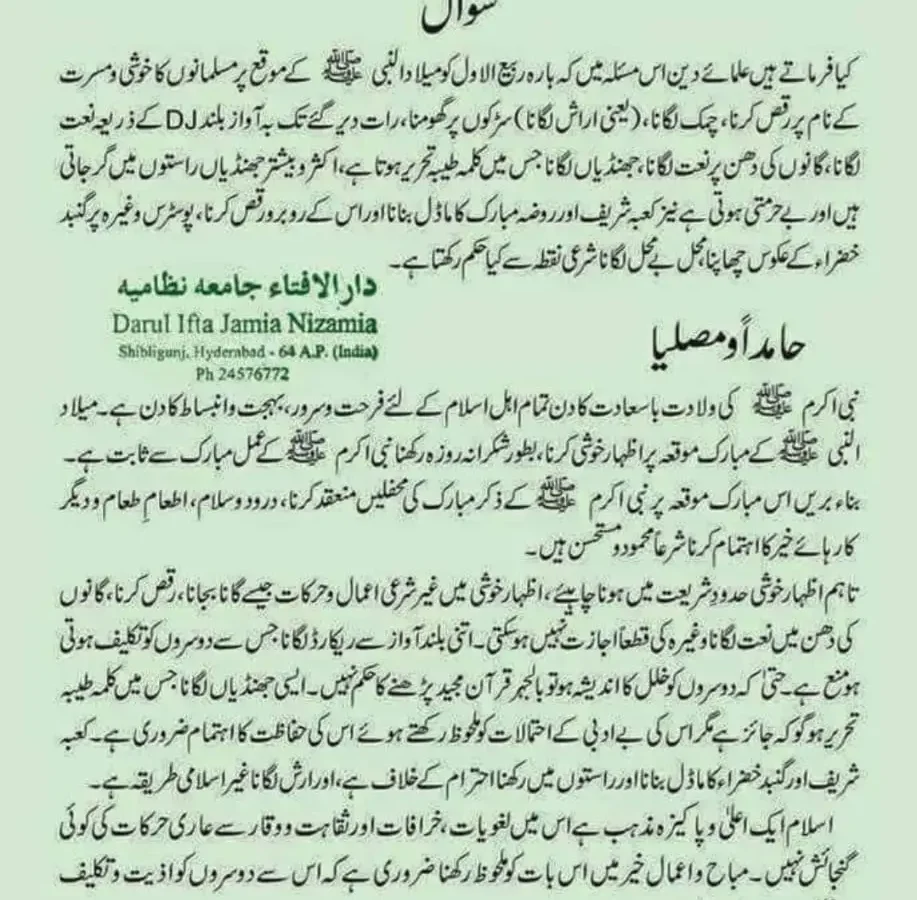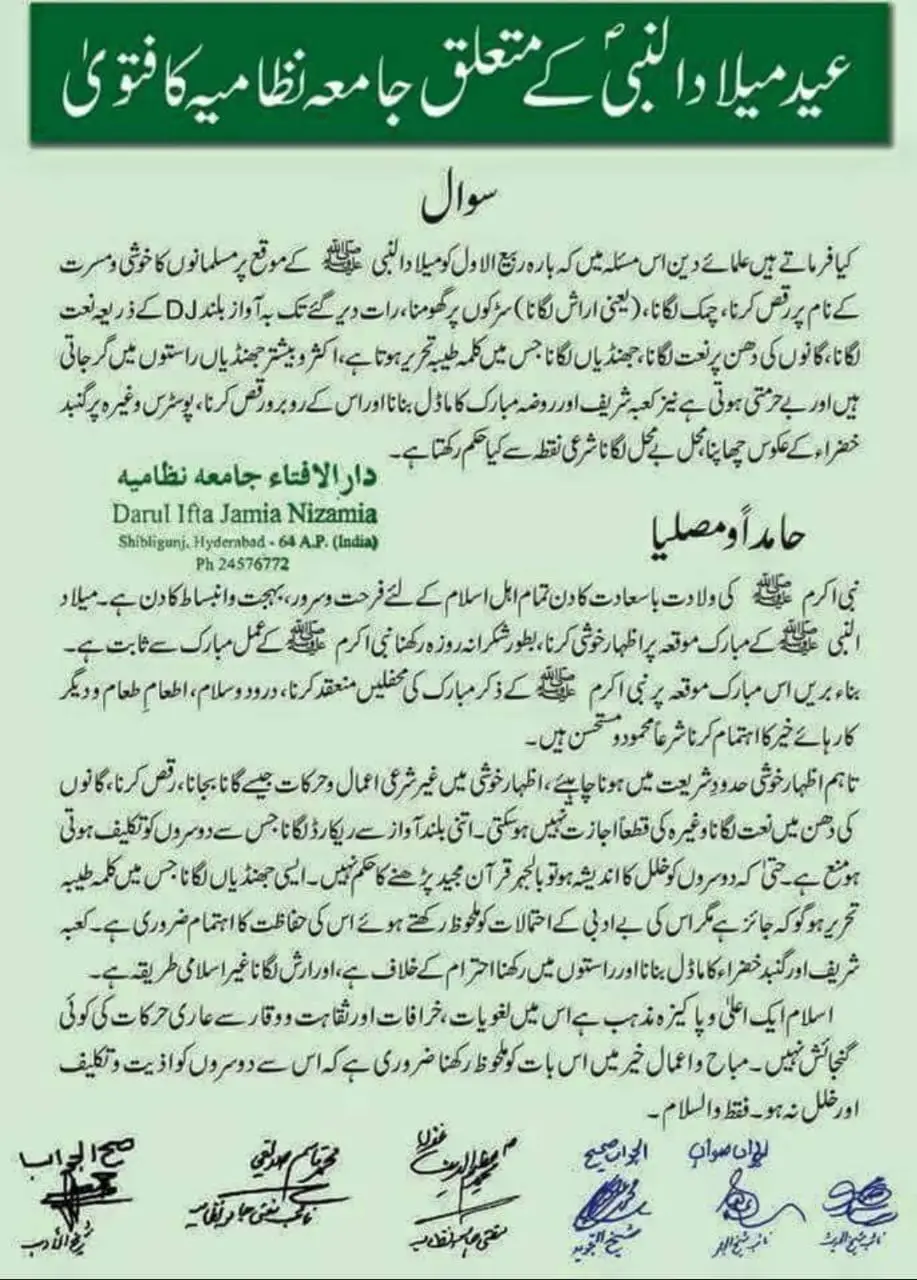Here’s What Jamia Nizamia Fatwa Says About Celebrations of Milad-ul-Nabi

Hyderabad: The Darul Ifta Jamia Nizamia, situated in Shibligunj, Hyderabad, has recently issued a comprehensive fatwa regarding the celebration of Eid Milad-ul-Nabi, commemorating the birth of Prophet Muhammad (pbuh). The declaration underscores the significance of this blessed day for Muslims worldwide, highlighting it as a time of joy and happiness.

The fatwa emphasizes the tradition of fasting as an expression of gratitude, aligning with the exemplary actions of the Prophet ﷺ. It encourages believers to mark this auspicious occasion by organizing gatherings for remembrance, exchanging greetings, providing sustenance, and engaging in various acts of benevolence, all of which are deemed both Shariah-compliant and commendable.
In response to specific queries about the permissibility of certain celebratory practices, the fatwa asserts that expressions of joy must remain within the boundaries set by Shariah law. Activities such as dancing, singing naats in a musical manner, and excessively loud festivities are explicitly prohibited. It further cautions against behavior that may cause discomfort or distress to others.
Regarding visual displays of celebration, the fatwa allows for the placement of flags bearing the Kalima Tayyaba, the Islamic declaration of faith, with a caveat for their respectful treatment. However, it unequivocally discourages the construction of models representing revered sites like the Kaaba Sharif and Tomb of Masjid-e-Nabawi in public spaces, considering it a gesture lacking in due respect.
Furthermore, the fatwa deems the practice of placing “Arsh” or glitter on the streets as inconsistent with Islamic principles. It underscores the purity and nobility of Islam, affirming that the religion does not condone the use of customs, myths, or movements that lack dignity and respect.
In conclusion, the fatwa emphasizes the importance of conducting permissible and virtuous deeds in a manner that does not cause inconvenience or distress to others. It calls for a celebration of peace and harmony, reflecting the core principles of Islam.
This declaration comes after careful consideration by the esteemed scholars at Darul Ifta Jamia Nizamia, renowned for their expertise in Islamic jurisprudence and their commitment to providing authoritative guidance on matters of faith and practice.
